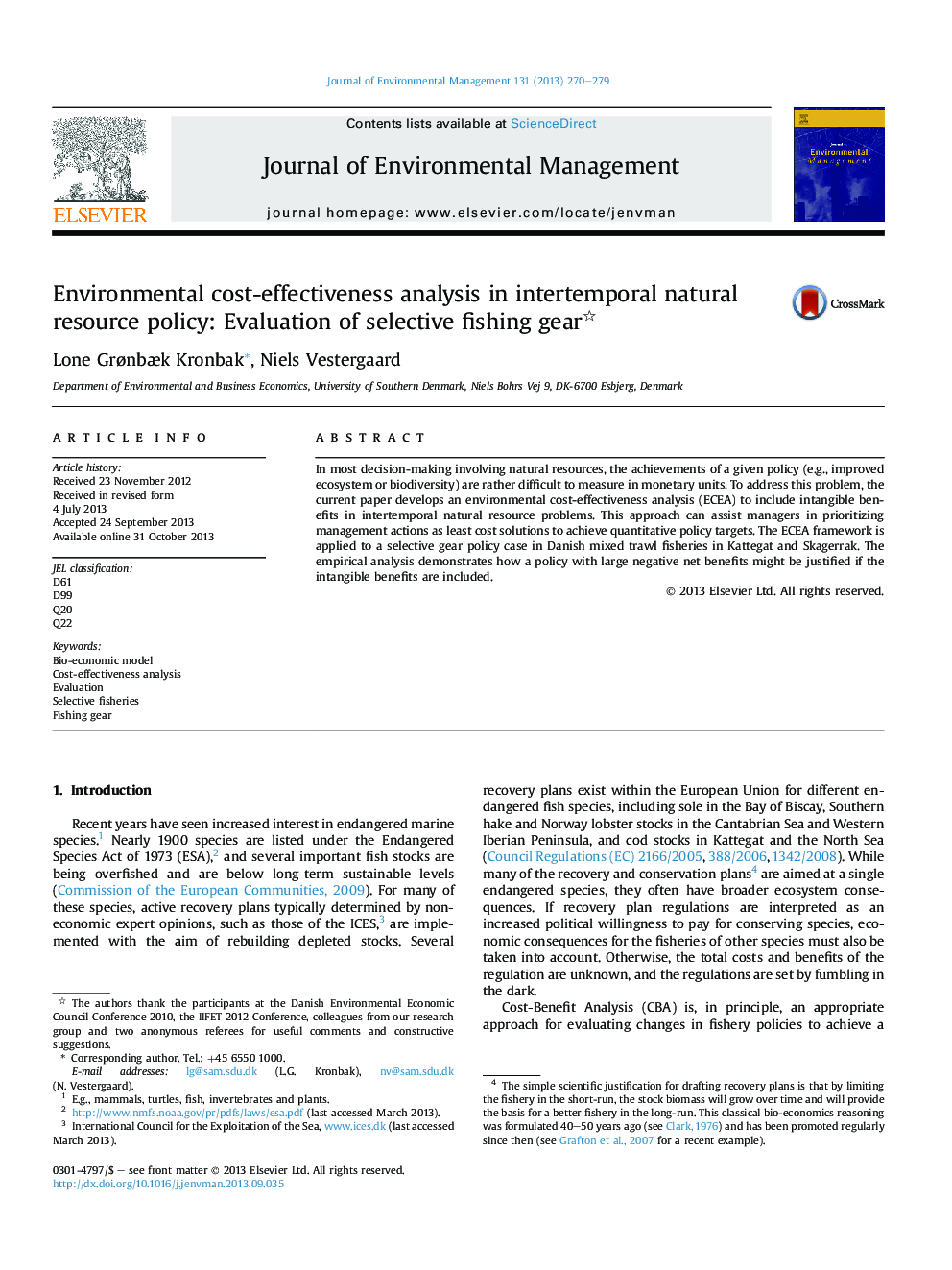| Article ID | Journal | Published Year | Pages | File Type |
|---|---|---|---|---|
| 1055955 | Journal of Environmental Management | 2013 | 10 Pages |
•We focus on decision-making involving natural resources.•We develop a modified cost-effectiveness analysis including intangible benefits.•The developed decision-making approach is intertemporal.•We introduce different ways of measuring effects for natural resource interventions.•The approach is demonstrated by application to an empirical example of fisheries.
In most decision-making involving natural resources, the achievements of a given policy (e.g., improved ecosystem or biodiversity) are rather difficult to measure in monetary units. To address this problem, the current paper develops an environmental cost-effectiveness analysis (ECEA) to include intangible benefits in intertemporal natural resource problems. This approach can assist managers in prioritizing management actions as least cost solutions to achieve quantitative policy targets. The ECEA framework is applied to a selective gear policy case in Danish mixed trawl fisheries in Kattegat and Skagerrak. The empirical analysis demonstrates how a policy with large negative net benefits might be justified if the intangible benefits are included.
